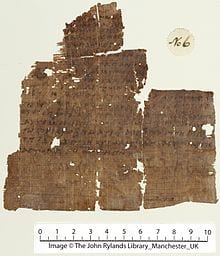
The first thing we say about God in the Creed is that God is Father. Actually, in the current English translation we name God “Father almighty.” I prefer to separate these two ideas with a comma. As I explained in my last post, I can think of God as Father and as almighty, but not both at once. If you’re thinking of yourself as especially mighty, I suggest becoming a father to cure your delusion.
This is the fourth in a series on the Creed of Christians. An introduction consists of my retelling of the Creed’s story. That and links to other posts in the series are here.
Imagining God as father with Jesus
Since the time of Jesus, “Father” has been probably the most loved of the titles Christians give to God. But the father image is a challenge, too, especially if we try to enter into Jesus’ imagination. For Jesus God is a father who waits and watches for the wayward son’s return and welcomes him back with a kiss.
One way of reading a parable is to locate oneself in the story. Where do we belong in the Prodigal Son parable? Most likely we’re the older brother. He has a just complaint, and it’s not just against the younger brother. He’s thinking:
That wastrel has already gotten his full inheritance gone and done whatever he pleased. Now he’s back, Father loves him for no good reason, and I’ll bet he gets another full inheritance. Father’s not being fair to me. And now he throws a big party in the kid’s honor.
The Father’s response to the grumbling son is surprising. He doesn’t apologize, doesn’t say, “I’ll make it up to you.” There’s no explanation of why, after all, this is the best course. Without even the slightest attempt at self-justification, the Father just says what the older son already knows:
Your brother was dead and has come to life again; he was lost and has been found. (Luke 15:32)
If that’s parenting at its best, it’s a challenge. To let reality speak, because it speaks to the heart, when every nerve tells us to try to convince the mind. Or to get our way by bribe or force or threat; but the Father wields no power over the son who won’t join the party. Just: “We had to celebrate.”
Father in the Old and New Testaments
Jesus wasn’t entirely original when he called God his Father, but his relationship as son to a father was intensely intimate and real. For the most part, you don’t find that in the Scriptures Jesus inherited. Some biblical images seem to apply more literally to God and others less literally. In the Hebrew Scriptures “king” seems to be the most literal image. On Jesus’ lips it’s “father” that is most literal.
The development of the father image started a little before Jesus. Hebrew authors give many titles to God, but with “king” you get the impression they really mean it. Not so, most of the time with “father.” Here are some examples of God as king:
- Listen to the sound of my cry, my King and my God, (Psalms 5:2)
- The Lord is king forever and ever. (Psalms 10:16)
- Who is the King of glory? The Lord, strong and mighty, the Lord, mighty in battle. (Psalms 24:8)
And that’s only one sixth of the way through the Book of Psalms. In contrast, here are some of the Hebrew references to God as father:
- Isaiah 64:8. Yet, O Lord, you are our Father; we are the clay, and you are our potter; we are all the work of your hand.
- Jeremiah 3:19. I thought how I would set you among my children, and give you a pleasant land, the most beautiful heritage of all the nations. And I thought you would call me, My Father, and would not turn from following me.
- Psalm 103:13. As a father has compassion for his children, so the Lord has compassion for those who fear him.
Imagine you were the Isaiah of the first quote telling your real father, “You are my father.” It doesn’t make sense. That’s something you would only say to someone who is not your real father, a mentor perhaps. Most of the older references to God as father are like that or are obviously just comparisons, like the third quote above.
Very late in the pre-Christian era, however, it changes somewhat. In a work written in the second century before Christ we find:
- LORD, Father and Master of my life, permit me not to fall by them! (Sirach 23:1)
It sounds like the author of this work, which Catholics, but not the Protestants, include in the Bible, really means “father.”
Jesus’ reversal
With Jesus “Father” is even more real, and “king” becomes the metaphor as the two images change places:
- Father, hallowed be your name. (Luke 11:2) ·
- Father, if you are willing, remove this cup from me. (Luke 22:42) ·
- Your heavenly father knows that you need all these things. (Matthew 6:32)
Jesus refers to God the King and the Kingdom of God often, but it’s always in a figure of speech, a comparison:
- “The kingdom of heaven may be compared to a king who gave a wedding banquet . . .” (Matthew 22:2)
There are many such Kingdom parables. But when it came to praying to God and speaking in a more literal way about God, Jesus complets the switch from “king” to “father.”
King and father are both male images, and I worry about way traditional language preferences the masculine in many ways. The father image, though, does make room for feminine qualities. That will be the theme of the next post: Is God also mother?
Image credit: Diocese of Westminster Youth Ministry via Google Images












